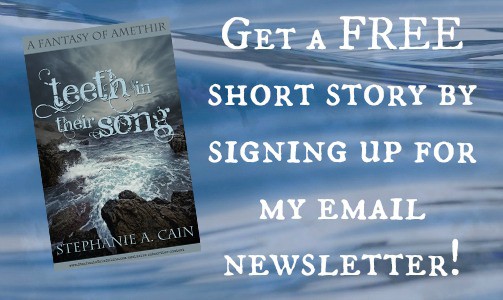Day 1 Word Count: 1809
|
*
According to the NaNoWriMo Report Card, I have written 4% of the 50k required. Unfortunately I can’t figure out a way for it to tell me how close I am to my personal 100k goal, but since my number is twice the general goal, that’s fairly easy to figure on my own. I’m not worried that this is below my daily goal of 3333 words, because I knocked off early to do some more plotting.
~~~
Last night I spent half an hour on plotting questions. There’s a very cool article, which souldance gave me last year, about how to plot a novel in an hour (or half an hour, if you do the short version), and I made quite a few interesting discoveries about this novel. It was fun! I’ll post the article behind a cut, as well.
OUTLINING A NOVEL IN AN HOUR
by Chris York
Based on an exercise designed by Alicia Rasley
This is a quick exercise designed to sketch out the major events of your novel. It only gives you a map – you have to make the drive yourself!
You can have fun with this. Do “anything” that comes into your head. After all, you don’t have to write the book!
The outline exercise is really brainstorming for very early in the writing process. You won’t learn how to write a synopsis from it.
Get a kitchen timer or set your alarm. You’re going to free-write for five minutes (or 3 minutes, if you’d like a shorter exercise) on several questions.
In free-writing, you put your fingers to keyboard or pen to paper and write, without regard to grammar, spelling, sense, or organization for a specified period of time. The trick is – you can’t stop till the bell rings. If you can’t think of anything to say, you just write your last word over and over. Pretty quick you’ll get bored and think of something else to say. But remember, turn off the editor. This is exploration, not real writing.
Type or write the question, the set the clock, read the question aloud, and go.
—————————————————————–
(5 minutes) 1. At the start of your book, what distinguishes your protagonist from other people? What makes your protagonist special enough to be worth writing about?
(10 minutes) 2. When the novel opens, what interesting or important thing is s/he on the brink of doing?
(15 minutes) 3. What external situation will influence, shape or affect your protagonist’s life throughout the course of the book?
(20 minutes) 4. What is the protagonist’s goal for the period of time your book will cover?
(25 minutes) 5. What are at least 3 obstacles in the way of achieving that goal?
(30 minutes) 5a. What is your protagonist’s darkest moment?
(35 minutes) 6. What qualities within the protagonist will help or hinder them in overcoming those obstacles?
(40 minutes) 7. How will the protagonist change or grow because of confronting these obstacles?
(45 minutes) 8. What do you want to happen at the end of the book? Will they overcome the obstacles, or fail to overcome them? Will they grow from the experience, or become bitter and dejected?
(50 minutes) 9. What price will your protagonist pay, what pain/indignity will they endure or what sacrifice will they make in order to have your ending come about?
SEE THE OTHER SIDE FOR INFORMATION ON TURNING YOUR ANSWERS INTO A STORY SKELETON.
OUTLINING A NOVEL IN AN HOUR PAGE 2
As you can see, this will outline a plot drive by the protagonist’s motivation and interaction with the world. Please note, not all books rely so heavily on the protagonist’s personality. This works best with popular genre novels or novels with a “quest” structure. The answers to these questions can help you determine where you’re going and how you’re going to get there.
Okay, time’s up. Now how do you make a story out of this? Think of the answers to Questions 1 and 2 as your starting point. The answer to Question 8 is your ending point (all subject to change, of course!); everything else represents landmarks along the way.
Use 2 to craft an opening scene that involves the reader right away. A character on the brink of some action provides a lot of forward momentum. Consider, for example, a soldier about to parachute into enemy territory.
That action, whether it’s allowed to happen or not, can involve the reader in the external situation described in 3 (the military operation the soldier is involved in, say), and/or be in pursuit of the goal you defined in 4. If it happens, what unforeseen consequences does it have? If it doesn’t happen, what has prevented it? Now what is the protagonist going to do?
Answer 4 gives the protagonist’s “intended” destination. Consider why the protagonist wants to achieve this goal, and how pursuit of it will involve him/her further in the external situation described in 3. (The soldier might have the goal of freeing a group of POWs from a prison camp.) How is the goal related to answer 1, whatever sets this person apart from everyone else? (The solider might be specially trained in dismantling electronic warning systems.)
The goal should be related to the external situation, but probably include some internal component too (he wants to win Dad’s approval by becoming a war hero). The obstacles too might arise from the external situation as well as from within.
Question number 5 listed obstacles to the achievement of this goal. Which of these are internal (fear of heights, moral objections to killing) and which are external (the electrified fence, the enemy sentry)? How do these relate to the external situation? Sketch at least one scene around each of these — or toss a couple out and have a single obstacle repeatedly plague the protagonist. Show the protagonist encountering each obstacle, taking stock, and acting or reacting.
Probably the obstacle will win at least once. Then what? The special qualities you defined in 6 should come into play here, both strengths (brilliant strategic skills) and weakness you have noted in this character (terrible fear of failure). What will cause self-doubt and failure? What will bring back confidence? Can you show a gradually ascending level of achievement, as small defeats are overcome to bring on small victories? What’s important is too make the interaction with the obstacles individual to this character, and the success or failure have some effect on him/her – the growth (positive or negative) you described in 7.
Will the goal be achieved? Either way, the final approach to that goal can be the climb up to the climax. The special quality and motivation of the protagonist, the most difficult obstacle, an important event in the external situation, and the goal, can all meet and explode in the climax.
In the resolution, however, your own ending takes over. The achievement of the goal can be fulfilling or empty – the soldier makes Dad proud of him, but dies in the attempt. Or the soldier might learn not to need Dad’s approval. You might want to resolve the protagonist’s internal conflicts and leave the POWs still imprisoned. Just remember, your ending is going to help determine the message your reader will retain after closing the book.
Remember, this is only an exercise, not a set of rules. Use what is illuminating, discard everything else. Your novel should find its own path.
But knowing where you’re going and some of the landmarks you’ll pass can make the journey a little less daunting.
—————————————————————–
Copyright 1994. This handout provided courtesy of The Report, a magazine for fiction writers, feature news, information, and markets. Subscriptions are $15 for six issues. Send checks payable to PULPHOUSE to Pulphouse Publishing, Box 1227, Eugene, OR 97440. May be reproduced for non-profit use if done so in its entire and unmodified form, including this notice.
And for those who, like me, get confused easily (heh), the questions are 5 minutes apiece, or 3 minutes apiece. I did the 3 minute thing, because I wanted to get to bed at a decent hour. ^_^
In other news, I am still sick, but I am sleeping more peacefully now (not as many weird dreams or being woken by coughing fits), and my voice is slowly returning. Hopefully Mom has avoided getting sick altogether. Okay, I am getting up early to vote tomorrow, so I’d better get to bed!
* Until I reach 50,000 words, I’m going to base my NaNoProMe on 50,000 – after that I’ll base it on 100,000 (gee, I’m not an optomist, am I? ^_~ )



